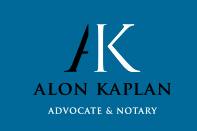
Setting up a private trust company involves creating a legal entity to manage and protect financial assets for beneficiaries. In Israel, this requires registering as a company, submitting necessary documents, and adhering to local tax laws. A private trust company’s advantages include asset protection, confidential estate planning, and optimized tax positions. With appropriate governance and compliance with regulations, you’ll guarantee effective management of assets. By understanding these elements, you’ll grasp the full potential of a private trust company.
Key Takeaways
- A Private Trust Company (PTC) manages trusts and estate planning for individuals or families.
- PTCs offer asset protection and confidentiality benefits for settlors and beneficiaries.
- They can be established by registering with the appropriate regulatory body, such as Israel’s Registry of Companies.
- PTCs require compliance with tax regulations and beneficial ownership disclosure.
- They operate with governance structures similar to corporations, including a board of directors.
Establishing a Private Trust Company in Israel
When establishing a private trust company in Israel, you’ll begin by registering with the Registry of Companies, a fundamental step in the process. This registration involves submitting essential documents like the application form and articles of association. As a trustee, you’ll shoulder significant responsibilities, ensuring that the trust operates within legal boundaries and provides asset protection for beneficiaries. The registration process is straightforward and doesn’t require a notary public, simplifying your initial steps. In Israel, companies are often limited by shares, which means that the liability of shareholders is restricted to the amount unpaid on their shares. You’ll also need to be aware of taxation and compliance obligations, as Israeli Resident Trusts are taxed on worldwide income. Ensuring proper reporting and disclosure of beneficial ownership is vital. Alon Kaplan’s expertise in trust law can be invaluable for understanding these obligations. These steps provide a solid foundation for managing trust assets effectively and securely.
Ownership Structures for Israeli Private Trust Companies
Understanding the ownership structures of Israeli private trust companies is crucial for guaranteeing effective control and management. These structures often incorporate trust ownership with significant family involvement, creating a controlled environment for wealth management.
- Family Involvement: Families can establish private trust companies to manage their assets, allowing members to act as directors and maintain control. In Israel, trusts can be created by law, contract, or instrument of hekdesh, with fiduciary relationships like corporate liquidators and estate administrators also considered trusts by law.
- Corporate Structure: Trusts work alongside corporate entities, like holding companies, to separate voting rights from property ownership efficiently. The legal framework governing trusts in Israel includes the Law of Trust, which ensures that these structures are implemented correctly and effectively.
- Asset Protection: Trusts offer asset protection, typically through limited companies that shield assets from liabilities.
- Business Succession: By integrating with Israeli Companies Law, trusts facilitate orderly wealth transfer across generations.
Such structures guarantee compliance with Israeli regulations and offer tax and succession planning benefits.
Governance and Management Considerations in Israel

Governance and management of private trust companies in Israel demand careful consideration to guarantee both legal compliance and effective asset management. Establishing solid governance frameworks is essential. A board of directors typically includes trusted advisers, family members, and independent professionals, assuring compliance and expertise. Decision-making protocols guide strategic management of trust assets, while conflict resolution mechanisms help maintain fiduciary integrity. Management structures often resemble corporations or limited liability companies, allowing for efficient trust administration. These structures consist of roles such as legal counsel, trust administrators, and compliance officers to manage daily operations. PTCs may build in-house teams or outsource specialized functions to maintain flexibility and control. In Israel, trust creation can be achieved through law, contracts, and hekdesh deeds, offering diverse methods for establishing trusts. Ultimately, governance and management considerations assure the trust’s purpose aligns with legal and operational standards. With Israeli trusts subject to specific taxation rules, it’s vital for private trust companies to incorporate tax compliance into their governance strategies.
Navigating Regulatory Compliance in Israeli Jurisdictions
While steering through regulatory compliance in Israeli jurisdictions, it’s vital to understand the complex framework that governs private trust companies. Staying informed about regulatory updates and adhering to transparency standards is important.
In Israel, trust companies come under the supervision of the Bank of Israel and must comply with specific legal and tax obligations. Here are key compliance aspects you need to focus on:
- Beneficial Ownership Disclosure: Report beneficial owners to meet transparency standards.
- Tax Reporting: File tax returns and report beneficial owners to Israeli tax authorities.
- Data Protection: Guarantee compliance with Israel’s Privacy Protection Law for handling personal data. Given the applicability of the Privacy Protection Law to entities processing data of Israeli citizens, even foreign trust companies must consider compliance if they handle such data.
- Financial Reporting: Submit necessary financial reports as part of overall tax compliance.
In addition to these requirements, it’s essential for private trust companies to engage with international legal publications to ensure their practices align with global standards and to stay informed about changes in international succession laws.
Operational Functions and Benefits of Israeli PTCs

In examining the operational functions and benefits of Israeli Private Trust Companies (PTCs), it’s essential to recognize their multifaceted role in trust administration.
As fiduciaries, they handle asset management and estate plans for settlors and beneficiaries, ensuring compliance with Israeli Trust Law. PTCs act as trustees for private trusts established by deed, contract, or inheritance directives, holding assets through corporate entities like Israeli Foundations to enhance legal efficiency.
They facilitate complex estate planning, including real estate, within Israeli legal frameworks. PTCs provide structured asset protection, enabling settlors to delegate management while maintaining control.
This centralized management not only protects beneficiaries’ interests but also enhances confidentiality and optimizes tax positions, simplifying succession processes and aligning with cultural and legal traditions. Alon Kaplan’s works on Trust Estate Planning in Israel provide comprehensive insights into how trusts can be effectively utilized within the country’s legislative and cultural contexts.
Frequently Asked Questions
What Are the Primary Advantages of a Private Trust Company?
Private trust companies offer significant advantages in family governance and asset protection. They guarantee long-term continuity by centralizing family operations, promoting cohesive wealth succession across generations.
With streamlined decision-making, your family gains flexibility and control over asset management. Customized services and beneficiary engagement enhance the alignment with your family’s values.
Additionally, they provide robust asset protection and confidentiality, safeguarding family privacy while mitigating fiduciary risks and guaranteeing regulatory compliance.
How Does a PTC Differ From a Commercial Trust Company?
In comparing a private vs. commercial trust company, you’ll notice key differences.
A private trust company (PTC) is owned by a family, allowing tailored governance and asset control, while a commercial trust serves the public under strict regulations.
PTCs offer privacy and quick decision-making, focusing on family-specific needs, unlike commercial trusts with broader services.
However, PTCs face more complexity and compliance burdens, often lacking the deep expertise of commercial trust companies.
Can a PTC Be Established in Any Jurisdiction?
You can’t establish a private trust company (PTC) in just any jurisdiction.
Jurisdictional considerations and regulatory requirements play a vital role. Only certain jurisdictions authorize PTCs under their corporate and banking laws.
These jurisdictions require compliance with specific regulatory requirements, such as capital adequacy, physical presence, and operational mandates.
This guarantees the PTC’s legal and functional integrity, making it essential to choose a jurisdiction with a favorable statutory framework.
What Role Do Family Members Play in a PTC?
Family involvement in a PTC’s governance structure is ironically essential, considering the intent is to maintain personal oversight.
You’ll find family members actively participating in committees like Investment or Distribution, ensuring decisions align with familial values. They bring expertise that aids in managing complex assets, contributing to key decision-making and risk management.
This involvement allows for a robust governance framework, balancing professional integration with personal service and aligning trust management with family objectives.
Are There Specific Tax Implications for PTCS Globally?
When considering tax implications for PTCs globally, you must navigate complex tax regulations and guarantee global compliance.
Each jurisdiction presents unique tax environments, some offering more favorable conditions than others. You need to understand the legal recognition of PTCs in various countries, as this affects tax treatment.
Additionally, PTCs must adhere to international tax reporting standards, requiring meticulous attention to regulatory compliance to avoid penalties and optimize tax efficiency.
Conclusion
Establishing a Private Trust Company (PTC) in Israel offers strategic benefits, but how do you guarantee it aligns with your financial goals? By understanding ownership structures, governance, and regulatory compliance, you can effectively manage and operate a PTC. This setup not only provides asset protection and privacy but also allows for tailored management solutions. Steering through Israel’s legal landscape requires diligence, yet the operational advantages of a PTC make it a compelling choice for managing family wealth.

